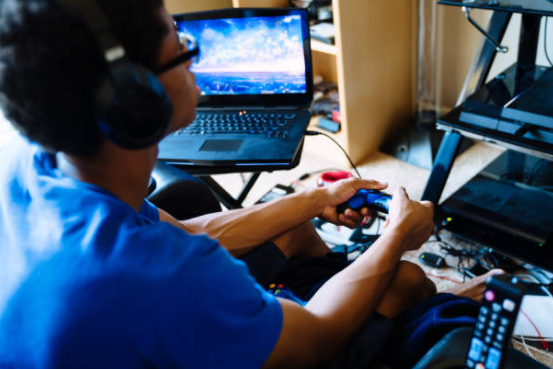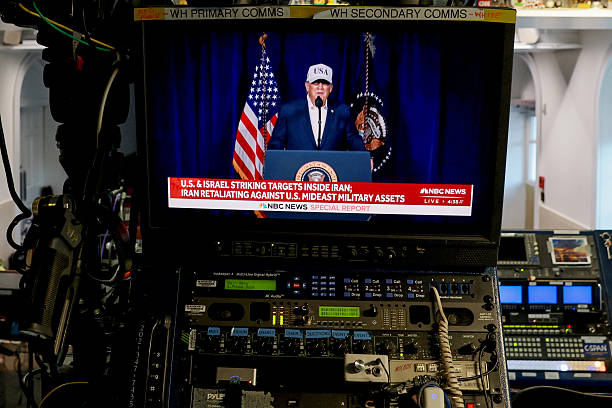(ThyBlackMan.com) We all know that video games can have a real effect on someone’s behavior, including their attitude, ability to focus, and even the rate of certain physiological functions in the brain. But what exactly is happening in someone’s brain when it engages with these games?
We’ve all heard the phrase “use it or lose it.” However, few of us really understand what this means. The brains of video gamers and non-gamers are different in some very important ways. They both use their brains differently when performing skills they have practiced a lot. In this article, we’ll explore how video games change your brain for better or for worse and the effects of playing on cognition.
Let’s take a look at five things video games do to your brain.
-
They Improve Focus and Learning Ability
The first ability that video games seem to improve is your focus. In a study published recently, researchers discovered that gamers who played action-based video games had more activity in their frontal and parietal attention systems than non-gamers. In non-gamers, these areas are typically more active when you’re not focusing on anything in particular. However, in gamers, this activity seems to remain at a steady level even when they aren’t doing anything specific. This could be good news for those struggling with ADHD or ADD (attention deficit disorder). These patients tend to have lower levels of activity in the frontal lobes, which could mean that video games can help these individuals focus more. A game such as Diablo, where you can use diablo 2 runes to help your character to become more powerful, as well as unite specific runes, to create Runewords, seems to help many to concentrate, stay on task, and just focus in general.

-
They Encourage Your Brain to Learn New Things Quickly
Another effect that video games may have on your brain is the ability to learn new things quickly and efficiently. A study published in the journal based on neuroscience found that when people played video games, their brains became better at learning and remembering new information (like letters). The researchers suggest this may be because playing video games requires specific parts of the brain to process information at a high rate of speed for extended periods of time. In terms of the short-term effects on your brain, playing video games has been proven to increase blood flow and oxygen consumption in those parts of the brain which it uses the most. In many ways, this is similar to the effect that physical exercise has on your body (and why physical exercise is often prescribed for patients with depression).
-
They Improve Your Memory Skills
In another study, researchers found that video gamers had improved cognitive function on memory tests after playing action-based games. This improvement was most prominent in the hippocampus, which is also involved with learning new information and forming memories. When playing video games, you’re engaging with a number of different parts of the brain such as motor skills (coordinating your hand movements), fine motor skills (writing with a mouse), visual processing (determining shapes and colors), auditory processing (hearing sounds that play on screen) and cognitive processes such as memory formation. All of these are highly important parts of the brain that can affect both your short and long-term memory.
-
They Can Help Boost Your Mood
Playing video games can also improve your mood, especially in those who are prone to depression. Researchers found that people who played action-based games had more brain activity in the left prefrontal cortex (the part of the brain that helps people with low moods learn and regulate emotions). This suggests that video games could potentially help treat depression. What happens when you start playing a video game is that your brain becomes conditioned to be able to handle all of the different tasks at once, resulting in a heightened state of alertness and awareness. This is known as The Flow State or Zone in gaming. When you’re doing something you enjoy, your body produces endorphins which act as natural painkillers, and also dopamine, a neurotransmitter that increases your pleasure response.
-
They Can Help Keep Your Brain Young
Finally, playing video games can help keep your brain young. In research, it was found that when people ages 50-69 played video games, it increased activity in their frontal lobe and anterior cingulate cortex. These are the areas typically associated with learning new skills and being able to adapt to change. The research suggests that playing video games could potentially help stave off age-related cognitive decline. When in the flow state, certain parts of the brain which control emotions are brought into check so that you’re no longer easily affected by things like fear or stress. This is known as emotional regulation and helps to explain why video games can be a form of self-therapy for some people. Also, when in a flow state, you get increased activity in the region of the brain associated with problem-solving, so your overall cognitive power is heightened.
In essence, video games can rewire your brain in powerful ways — including increasing your ability to focus and learn new skills!
Staff Writer; Corey Shaw
Have any Tech Tips? News? Hit up our Tech Guru at; CoreyS@ThyBlackMan.comhg

















Leave a Reply